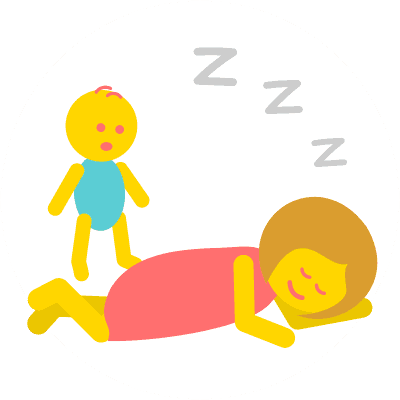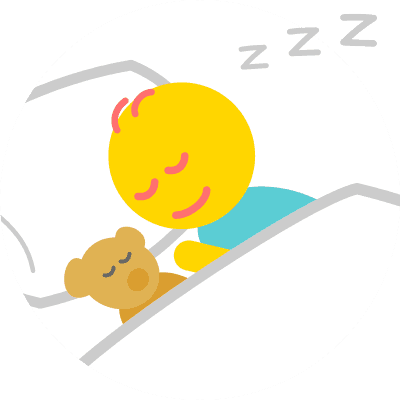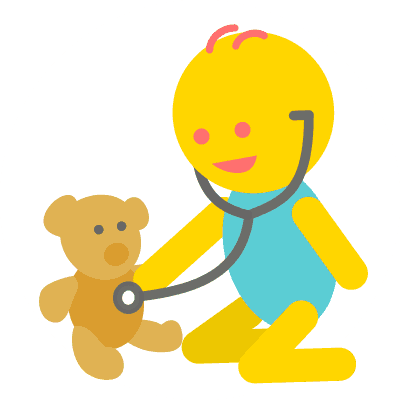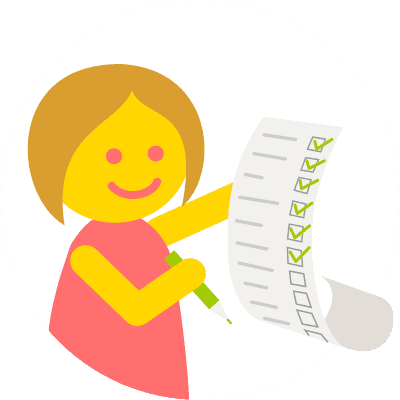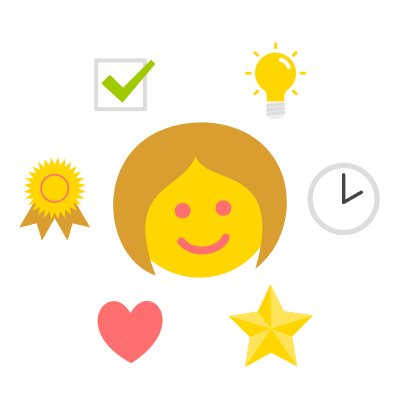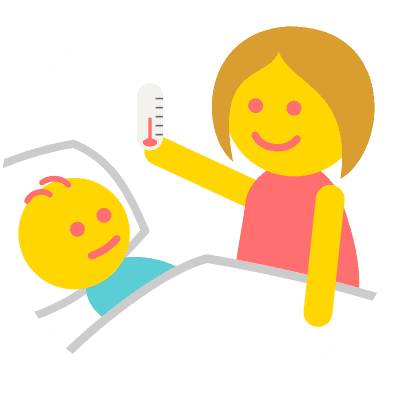Babysitting Night Shifts (How to Cope with no Sleep!)
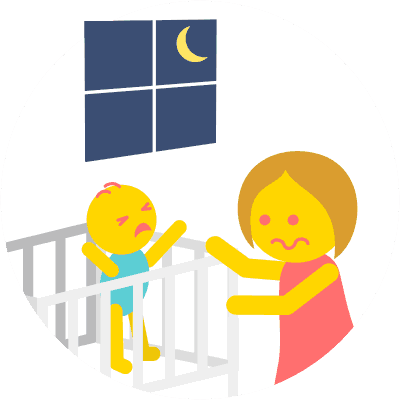

Written by
Emma Smith, RN
Registered Emergency Nurse

Edited & Illustrated by
Matthew James Taylor
Kidsit Founder, General Manager
Key Takeaways
- Prioritize Sleep Before and After Your Shift: Aim to adjust your sleep schedule in advance by gradually shifting your bedtime. After your shift, create a conducive sleep environment by blocking out light and keeping your room cool.
- Manage Your Diet and Hydration: Avoid large meals and caffeine close to bedtime. Opt for light, nutritious snacks to maintain energy levels without disrupting your sleep cycle.
- Prepare Your Sleeping Environment: Use blackout curtains and blue-light-blocking glasses to minimize disruptions and promote restful sleep during the day.
- Stay Active During the Day: Engage in light exercise and spend time outdoors to help reset your body clock and improve sleep quality.
- Understand the Impact of Sleep Deprivation: Being awake for extended periods can impair cognitive function and alertness, similar to having a blood alcohol concentration of 0.05%.
So you’ve got an overnight babysitting job quickly approaching. How do you best prepare to not only look after the kids but also cope with the sleepless night? The last thing you want to do is feel like a zombie the next day.
How to cope with the sleepless nights while babysitting overnight: Prioritize sleep both in the lead-up and days following your shift. When working, avoid eating large meals overnight and drinking caffeine after midnight. Once you get home, block out the light and ensure your bedroom is cool. Upon waking, exercise and don’t forget to spend time in the sun to reset your body clock.
Kidsit babysitting statistics
26.01% of babysitters are available to babysit overnight, and 37.92% of babysitters are available to work at least one night per week.
(Babysitting statistics calculated weekly from our live member data — Updated 16 Feb 2026)
This article will explore the things you need to remember in the days leading up to your overnight babysitting shift, tricks when eating and drinking during the night and what exactly you should do once you get home in order to sleep during the day.
Before The Overnight Babysitting Job
The timeframe for when you are requested to work for the entire night can significantly change how you prepare your sleeping pattern, meal prep, and bedroom environment. The earlier you know, the better.
Let’s first talk about sleep preparation:
When hired two or more days in advance
Some night shift workers like to “taper” their sleep to mimic the night shift hours. This means gradually pushing out their regular bedtime. For example, if you normally go to bed at 10 pm and wake at 7 am, instead you may go to bed at 2 am and wake around 9-10am. This is obviously dependent on your day job if you have one. The thought here is to prepare your body for what’s to come in the following days.
Staying awake by watching movies, calling a friend in a different time zone and cooking can be great ways to stay awake during this time.
When given less than a days notice
If you’re only told the morning of that the role requires you to stay overnight, it is highly recommended you make time for sleep or a nap in the afternoon. Successfully sleeping though can be difficult for most as you’re working against your body clock. But don’t give up too easily.
I find doing an exercise workout and even cleaning the house can make an enormous difference when trying to sleep later in the afternoon / evening. If you’re working for more than one night shift, the housework is often pushed to the side, so it’s best to attend to the washing and other housework tasks now.
Bottom line:
Unfortunately, we can’t “bank sleep” and use it for later. It needs to be a priority. Even if you just rest and close your eyes it’s proven to still be effective. Skipping this sleeping step could mean you’re awake for potentially over 24 hours. You may not think this is a big deal, but research shows being awake for between 17-19 hours is similar to having a blood alcohol level of 0.05. I’m sure the parents of the kids you’re looking after don’t want a drunken person in charge of their kids.
Bedroom preparation
If night shift babysitting is something you are keen to do more of, putting some time into making your bedroom feel like a quiet, cool cave is the key to coping with this non-traditional schedule, both in the short and long term.
The two biggest things to focus on here are blocking out the light from the sun and also finding ways to keep your room cool. Use these few days before your shift to get your bedroom organized. This can take some time and preparation but trust me when I say, you will not have the energy or stamina to do this after a shift.
Here are some things to consider when purchasing and organizing your bedroom:
- Blackout blinds – Aim for 100% black-out where possible. These can be pull-down curtains, drapes or even the high tech external blinds. It all comes down to your budget. If you’re not overly handy don’t worry, there are products available that require little setup and still do a great job.
- Blue-light-blocking glasses – My favorite sleep aid. After minding the kids all night, you’ll probably want to “wind down” once you get home. This could mean scrolling on your device, watching a movie or even playing some video games. While seemly harmless, the light coming from these devices is keeping your sleep hormones awake.
When wearing blue-light-blocking glasses you’re not only allowing these hormones, like Melatonin, to do their job properly, but you’re also protecting your eyes from straining. I recommend putting them on immediately once you get home (90 minutes prior to sleeping is ideal) and not taking them off until lights go out to sleep. I fall asleep quicker, stay asleep and don’t wake up feeling groggy, which is a huge improvement on those who commonly take sleeping pills.
See my blue-light-blocking glasses buyers guide if you're interested in learning more. - Eye mask – Oversized, silk masks seem to work best both in efficiency and comfort.
- Ear Plugs – Block out the daytime traffic or even the neighbor's dog by using earplugs. Just ensure you get the right size so they don’t fall out or irritate your ears.
- Fan – Your body naturally cools when we sleep so don’t make its job any harder by turning the room into a sauna. Keep your bedroom temperature between 60 and 67 degrees Fahrenheit (between 15.5 and 19.5 degrees celsius) for optimal sleep. Using an air conditioner works well but using it in conjunction with a fan provides a nice distracting noise and calming breeze throughout your room.
- Bedding – Ensure your pillow, mattress, sheets, and mattress protector are as comfortable and supportive as possible. I make sure my sheets and blanket are washed and ready for after my shift. Knowing you're climbing into a clean, fresh bed is relaxing and very comforting after taking care of the kids all night, allowing you to wind down easily.
- Lavender – This simple essential oil has proven to help make us sleepy, even if you’re still wired from a big night with the kids. If this concept is new to you, I strongly encourage you to give it a shot. There are a few ways to apply it based on personal preference and all have similar calming effects.
- A few drops in the bathtub after your shift.
- Rubbing the oil on your wrists and temples.
- A few drops on your pillow.
- Through a diffuser.
Bottom line:
Use whatever time you have available to create your very own “cave.” Cool, dark and quiet are your three priority areas. Some create a space, which feels like a 5-star hotel and this helps them relax significantly. Don’t assume you’ll have time (or the energy) once you get home from a shift to organize your optimal bedroom environment.
Food preparation:
Depending on the job and what’s offered by the hosts, meal preparation may not be necessary. However, don’t assume they are going to provide night shift friendly snacks.
In my experience, the foods which are kindly left for you to enjoy are packed with sugar. This is typically a nice “treat” for looking after their babies. While delicious, the sugar fall is horrible overnight! I suggest skipping the sugary snack and leaving it for tomorrow.
If you're not sure if food is provided, you can always ring up and ask a few days before the shift. This is not embarrassing or rude and may simply have been an oversight on their end.
Learn more about food expectations in this article: Do babysitters provide food?
If you are still unsure what is provided, it’s best to organize one main meal you can eat around 8.30pm with 3-4 small snacks you can enjoy between midnight and about 6 am (or just before you leave). There is no need to bring a second “main” meal to eat at 3 am. Your digestive system is not ready to digest such a meal so stick to hearty snacks instead, which we’ll go over in a moment.
If the parents do kindly provide these meals and snacks, you can always take your meal home again so there is no need to worry about food wastage.
Slow Cooker
When preparing your main meal, I suggest using your crockpot or slow cooker. You can put it on the morning of your shift and by the afternoon you’ll have a delicious hearty meal ready to take to work. Use up all the “not so fresh” veggies in your fridge and the cheaper cuts of meat to create this masterpiece.
Should I exercise before a night shift?
It may seem unusual, but working out before a night shift not only helps with the afternoon nap I mentioned earlier, but it can also give you a boost during the night when you feel fatigued. Exercise can help us fight stress and anxiety, improve our ability to concentrate and boosts your energy, focus, and mood.
I highly recommend making an effort to exercise for at least 30 minutes to the point you are huffing and puffing before your shift. If you can still hold a full conversation, push yourself a bit harder. (You can break these up into 3 × 10 minute blocks if that better suits your schedule).
Furthermore, working out after a night shift may seem crazy, but it’s not totally out of the question for some who prefer this schedule and whose sleep is not affected. When we work nights, we are forced to think outside the square to stay healthy and this may be a great option after your overnight babysitting job.
During The Night While Babysitting
For most night shift babysitting jobs, you will be given warning from the parents that you are expected to stay overnight. However, history suggests this is not always the case.
Though rare, some babysitters don’t receive any notice that their shift requires overnight hours. You are well within your rights to renegotiate and put your own health and situation first. However, if you are happy to work these extended hours here is a few questions to ask the parents how they want the night to play out.
- What time approximately can you expect them home in the morning? (As you may have plans for the following day).
- Are you allowed to sleep? If so, where?
- What is the rate of pay for working night shift hours?
- Have they left any food for you overnight?
- Do you know how to use the heating and cooling (you will start to fill chills at 3 am as your body naturally cools preparing you for sleep.)
- What jobs would they like completed overnight?
- How do you control the TV, sound, WIFI and streaming service?
- Are there any specific requirements for each child such as medication or a late night routine you need to be aware of?
- What phone number can you reach the parents?
Recommended eating schedule overnight
Our body clocks, unfortunately, haven’t evolved to be “shift work compatible.” Therefore, we need to play by its rules in order to avoid horrible stomach problems and other health conditions 3rd shift workers are commonly prone to.
One thing we can do is to eat at times which are as closely aligned to “normal” as possible. Depending on when your shift starts will depend on when (and where) you should eat. But as a blanket rule, eating your main meal or dinner no later than 8.30 pm is ideal. But I understand there could be issues getting kids to bed, so eating a little later is okay.
Use the sun as a cue of when to eat. If the sun is still shining or even setting, your digestive system is awake and ready to do its job. However, when it’s dark, our digestive system slows and works very differently, meaning we should limit what we eat during this time.
What should I eat on a night shift?
When you do start feeling peckish a few hours after eating your main meal, stick to small but filling, high protein snacks such as:
- Raw veggie sticks and hummus (celery, bell peppers, carrots, snow peas.)
- Tuna and crackers.
- A whole-grain sandwich.
- Fruit and nut (avoid the roasted type of nuts.)
- Chia pudding (pre-made the day before.)
- Devilled eggs or whole eggs.
- String cheese.
- Dark chocolate (look for types over 70% cocoa.)
What about coffee while on a night shift?
If you’re feeling thirsty for caffeine and it’s before midnight, having a coffee is fine. But avoid having another one within 4-5 hours of going to sleep. Caffeine can stay in our system for up to 12 hours making getting solid zzz’s a challenge once you get home.
So what can you drink instead? Here are a few options:
- Water with fresh fruit - lemon, mint, orange or strawberries work well.
- Herbal tea - Peppermint is great after eating as it helps ease digestion. Green tea is packed with healthy antioxidants and is best taken between meals. However, avoid eating 2 hours after and 2 hours before making a brew.
- Kombucha – A fermented drinking incredible for our gut health.
- Ginger root tea.
- Homemade juice - pre-make this as you can’t use the blender in the middle of the night.
How to stay awake?
Keeping busy and not allowing yourself to get too comfortable once the kids are in bed helps us to stay awake. Here are a few options you could try:
- Workout - Yoga or Pilates exercises are quiet and can be very effective.
- Put on an epic movie, that you just need to see how it ends.
- Clean up around the house (bonus points.)
- Make the kids lunches (extra bonus points.)
- Complete work for a side hustle business you’re working on.
- Check emails and respond accordingly.
- Listen to an interesting podcast.
- Start watching an intriguing series on Netflix.
Note: If you’re feeling sleepy, set an alarm to go off once every 30 minutes to ensure you stay awake.
What to bring to stay awake:
- Your computer or tablet with power cord (and an adapter if necessary.)
- Deck of cards - Solitaire anyone?
- A sweater (you’ll get cold at around 4 am.)
- Your cell and charger.
- Magazines and newspapers.
- Writing paper, Christmas cards, birthday cards – Letter writing can be a simple yet very effective way to communicate with your spouse and kids while working the night shift. Why not use this time to write a few notes to your loved ones and hide them in places they least expect?
- Drink bottle – Staying hydrated actually plays a role in how well you sleep later on.
- Lip balm and hand cream (I always need this later at night while working in the ER).
- Any drinks or snacks I mentioned earlier.
See our complete list of overnight babysitting tips for more gems you might not have realised.
What to avoid doing overnight to stay awake:
- Turning up the heater too high.
- Snuggling on the couch with a blanket and getting too comfortable.
- Drinking alcohol as a relaxant.
- Eating meals full of carbs like pasta and pizza as these can make you want to sleep.
- Drinking hot milk can make you sleepy, so leave this to when you get home.
After The Overnight Babysitting Job
How you treat the next 12-24 hours will have a huge impact on your mood, productivity and general feelings of fatigue for the next few days.
Getting home safety
Did you drive to your overnight babysitting job? Are you feeling safe to drive home or do you need to have a nap in the car before you make the journey?
It’s really important you’re not embarrassed by needing to sleep before you drive. Park in a nice shady, quiet space and set your alarm for 20 minutes to ensure you don’t oversleep. Why not ask if you can use the parent’s garage to have a snooze? It’s the perfect spot. If you’re really organized bring your eye mask and even a pillow and blanket to ensure this sleep is an achievable, comfortable experience.
Once you get home, sleep must be your priority
Try and avoid running errands, doing housework or making phone calls (if they can wait). Our bodies, as I said, love routine and doing the same behaviors in the lead up to bed allows your brain to make the connection between these things and sleep. Find a routine that works for you and do this consistently.
Here are rituals which could form part of your healthy sleeping habits:
- Having a warm bath or shower – Just don’t make the water too hot as it can suck all your skins moisture leaving it dry and itchy.
- Wear blue-light-blocking glasses – As I mentioned, slide on these glasses after showering and leave them on while brushing your teeth and getting ready for bed. If you do happen to wake up during the middle of the day and can’t sleep, again slide on these glasses before turning on the light to read or visit the toilet. It’s important to keep your sleep hormones awake if you still plan on sleeping.
- Set up your oil diffuser with lavender.
- Listen to meditative sleep type music or even an adult story book!
- Avoid heavy, in-depth, emotional or thought-provoking conversations before bed. Revisit these once you have had some sleep.
How about breakfast? Should I eat before I sleep?
Absolutely. Eating a small but filling breakfast will prevent you from waking up feeling hungry in a few hours. You may not be aware, but there are particular foods, which can boost our sleep, even during the day.
Here is a list I welcome you to try after a night shift:
- Tart cherry juice (or just plain tart cherries) (source).
- Hot milk.
- Kiwi fruit.
- Banana.
- Oats with crushed almonds and yogurt.
- Chamomile tea.
- Walnuts.
What not to eat / drink after a night shift
There are a few items, which will ruin your sleep due to bathroom interruptions or preventing you from being able to relax.
- Alcohol.
- Caffeine.
- Nicotine.
- Too much water in the hour before bed.
- Takeout on your way home. Your digestive system is not fully awake yet, potentially leading to feelings of bloating, pain, reflux and often nausea.
How long should I sleep for after a night shift?
This is entirely dependent on your upcoming schedule and if you have a second babysitting job the following night. In most cases, an overnight shift will be a single event but I’ll explain what to do in both situations:
Multiple night shifts:
Try and sleep for 7-9 hours in one long stint, aiming to be in bed within 30 minutes-1 hour of getting home. Once you wake up in the late afternoon, get out of bed and don’t laze around for hours. Use the daylight hours to exercise, get some sun exposure (which helps “reset” your body clock) and run the errands you purposefully put off this morning. Enjoy dinner before you leave for your next shift and don’t forget to take your overnight snacks and drinks.
One night only:
There are two ways to attack this.
Option one (my desired choice) is to have only a “short sleep” of around 4 hours then get up and start your day. If you got home at 8 am and were asleep by 9 am, get up around 1 pm. Obeying your alarm at this time is incredibly difficult, but necessary to sleep the following night. So resist the temptation to snooze.
After you wake, stay busy. Have jobs, classes or appointments, which cannot be missed (or you have pre-paid for) to give you the motivation to get out of bed. Once you’re up, make the bed, open the blinds, shower and get dressed in real clothes – not your PJ’s.
The second option is to stay awake for the entire day, going to sleep after an early dinner. I am a complete zombie doing this method but others say it can help with “resetting” your body clock quicker.
Bottom line:
This process of getting back to a daytime schedule is purely driven by sleep. Choose a method which works for you and your situation. Try and ensure you are getting the recommended 7-9 hours sleep necessary to function (even if you do need to break this up into a few parts).
What happens if I can’t sleep during the day after working a night shift?
This can be incredibly frustrating because you feel deliriously tired but nothing seems to work.
If you have used the options we spoke about earlier such as blackout blinds, a fan, lavender, eye mask, and ear plugs, here are another few suggestions to make you feel sleepy:
- Write it down – Using a real pen and paper, write down what’s on your mind. I find it’s either things I forgot from the shift before or my to-do list for the following day. Even if I don’t turn the light on to write, the fact I’ve written it down means I no longer need to force myself to remember this information.
- Charge your phone outside your room - Is it on silent? You don’t need any more distractions to obtain good sleep. Plus it stops you from “clock staring.”
- Read a book – If you’re not a big reader I suggest adopting this method. Just remember to put on your blue-light-blocking glasses and use a small reading book light instead of lighting up the entire room.
- Wear socks and gloves – Warming your hands and feet can send signals to your brain you’re ready for sleep. It may seem weird but it works a treat!
- Try acupressure – Simple hand massages can again send sleepy signals to the brain to help you sleep.
- Drink chamomile tea – Is commonly referred to as a “mild tranquilizer or sleep inducer” (source).
- Meditative counting – Start by saying “100”... breath…”99”…breath etc. The breathing component makes this feel less like a race and more a relaxation tool.
- Roll your eyes in bed – Again, seems strange but this trick naturally promotes melatonin release as it’s similar to what our eyes do when we are asleep.
How to transition back to day shift quickly
Getting 7-9 hours sleep, staying hydrated, eating a healthy diet, exercising, wearing blue-light-blocking glasses and getting out in the sun are all areas which can help speed up the transition. Don’t complicate this process.
Our body clock or circadian rhythm is made up of millions of little clocks all triggered by light or darkness. This will impact how you feel at any given point throughout the day / evening. To transition back quickly, be sure to follow the bodies traditional pattern of light and dark.
Bottom line:
Be kind to yourself as you transition back to the day shift and remember to do stuff you enjoy. It’s okay to go to bed early if your body is craving sleep but try not to fall asleep on the sofa as your sleep quality is far greater when in bed.
How Many Babysitters Have Babysat Overnight?
We polled our babysitters to find out:

We have lots more help for night-time babysitters...
Read our other helpful guides:

